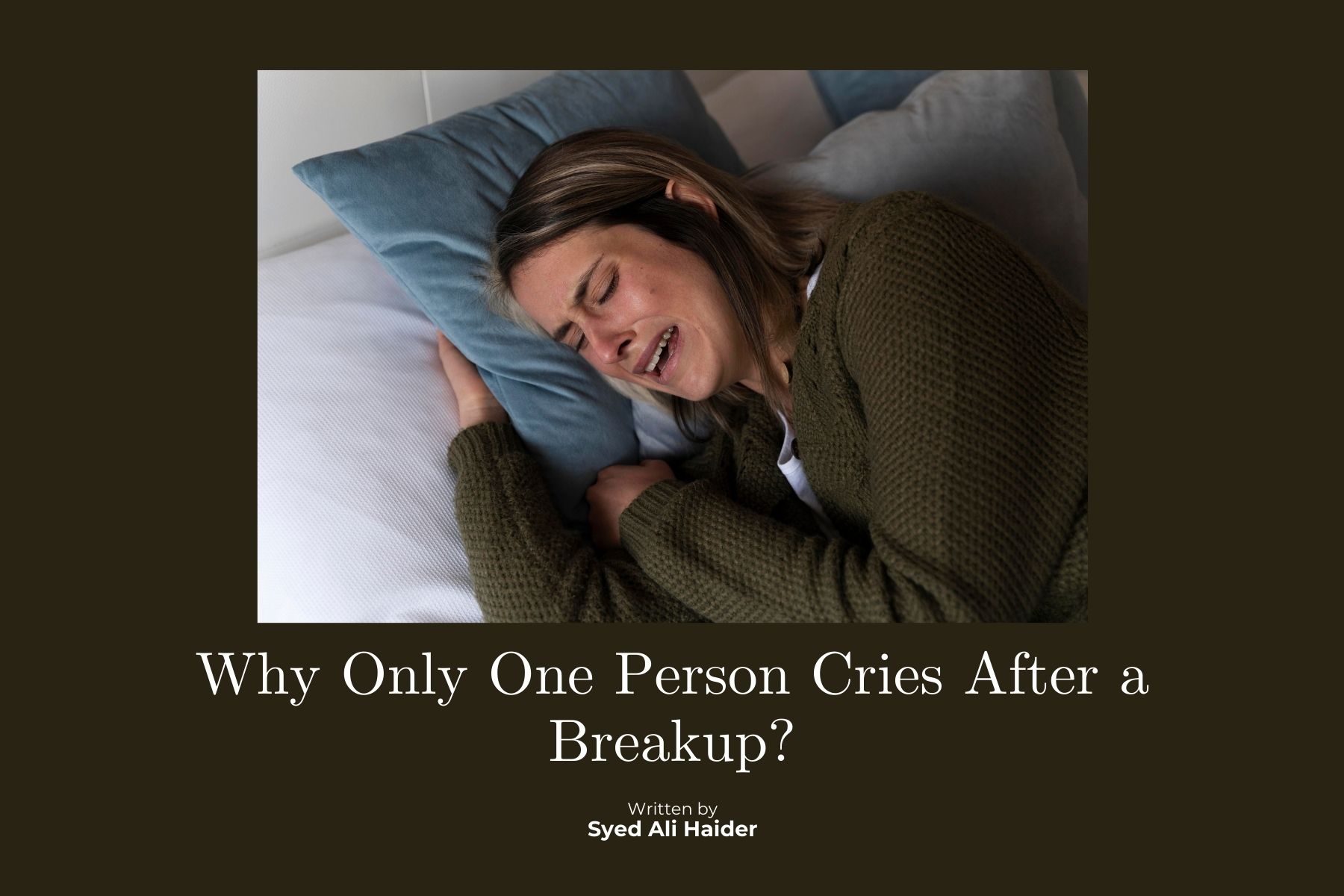Why Only One Person Cries After a Breakup?
The Psychology Behind Unequal Pain
Have you ever wondered why in most breakups, only one person ends up crying while the other seems completely unaffected?
It’s not always because they don’t feel pain. Often, the one who initiates the breakup has already emotionally detached long before the final goodbye. As a result, the person left behind bears the brunt of the emotional devastation.
In this blog, we’ll explore the psychological truth behind why only one person cries in a breakup, how preparation plays a role, and what you can do if you find yourself in this heartbreaking situation.
One Cries, The Other Doesn’t – But Why?
It might seem like only one person is suffering, but the reality is more layered.
Breakups are rarely mutual. In most cases, one person makes the decision to end things—consciously or subconsciously—before the actual conversation even happens. That means they’ve already started preparing themselves emotionally and mentally for life without the relationship.
Meanwhile, the other person is caught off guard, left in shock, confusion, and overwhelming emotional pain. This imbalance is what creates the visible contrast: one seems composed, while the other is completely shattered.
The Silent Preparation of the One Who Leaves
The one who ends the relationship doesn’t just wake up one day and decide to leave. It’s a slow process. They begin noticing their dissatisfaction or emotional disconnection, and instead of expressing it, they start pulling away.
• They create emotional distance.
•They become less available.
• They stop putting in effort.
• They mentally detach.
By the time they say, “I don’t love you anymore,” they’ve already mourned the relationship privately.
This is why they don’t cry when the breakup happens. Their grieving process started weeks or even months ago.
The Physical and Emotional Pain of the One Left Behind
The person who didn’t see it coming feels like their world has collapsed. The pain isn’t just emotional—it’s physical.
Many people report feeling:
• Chest tightness
• Stomach cramps
• Loss of appetite
• Sleeplessness
• Panic attacks
It’s not an exaggeration to say that breakups can feel like a kind of emotional death—especially for the one who’s still deeply in love.
Why Doesn’t the Other Person Cry?
It’s not that they don’t feel anything at all. It’s just that their way of dealing with it is different, and more importantly—they’ve had a head start. They’ve processed it. They’ve visualized life without you. They’ve accepted the end.
That’s why it feels like only one person is crying: the emotional timelines are different.
Can Both Cry? Can Breakups Ever Be Mutual?
Yes, mutual breakups do exist—but they’re rare. In a mutual breakup, both partners acknowledge that the relationship isn’t working. Even then, the pain may still be unequal based on each person’s attachment level.
But in most cases, one person leaves, and the other begs them to stay.
What Can You Do If You’re the One Who’s Crying?
1. Acknowledge Your Pain
Don’t suppress your emotions. Cry if you need to. It’s okay to feel devastated.
2. Recognize the Signs Early
When your partner starts becoming emotionally distant or gives off breakup signals, you have two choices:
• Prepare yourself mentally and emotionally
• Try to address the issues before it’s too late
3. Seek Support
Talk to a relationship counselor or therapist. You don’t have to go through this alone.
4. Focus on Self-Healing
Engage in activities that bring you joy. Rediscover who you are outside the relationship.
Are You Going Through a Breakup Right Now?
My name is Ali Haider, and I am a relationship counselor.
If you’re in a situation where you love someone deeply and feel like you’re about to lose them—or already have—I’m here to talk.
Whether you’re struggling with heartbreak, need help identifying relationship red flags, or want to prevent a breakup, I can help guide you through it.
You don’t have to suffer alone. Let’s talk.
Breakups are rarely fair. One person cries while the other walks away. But understanding the psychology behind it can help you cope better and even grow from the experience.
Remember: healing takes time, but with the right guidance and support, you will come out stronger.




